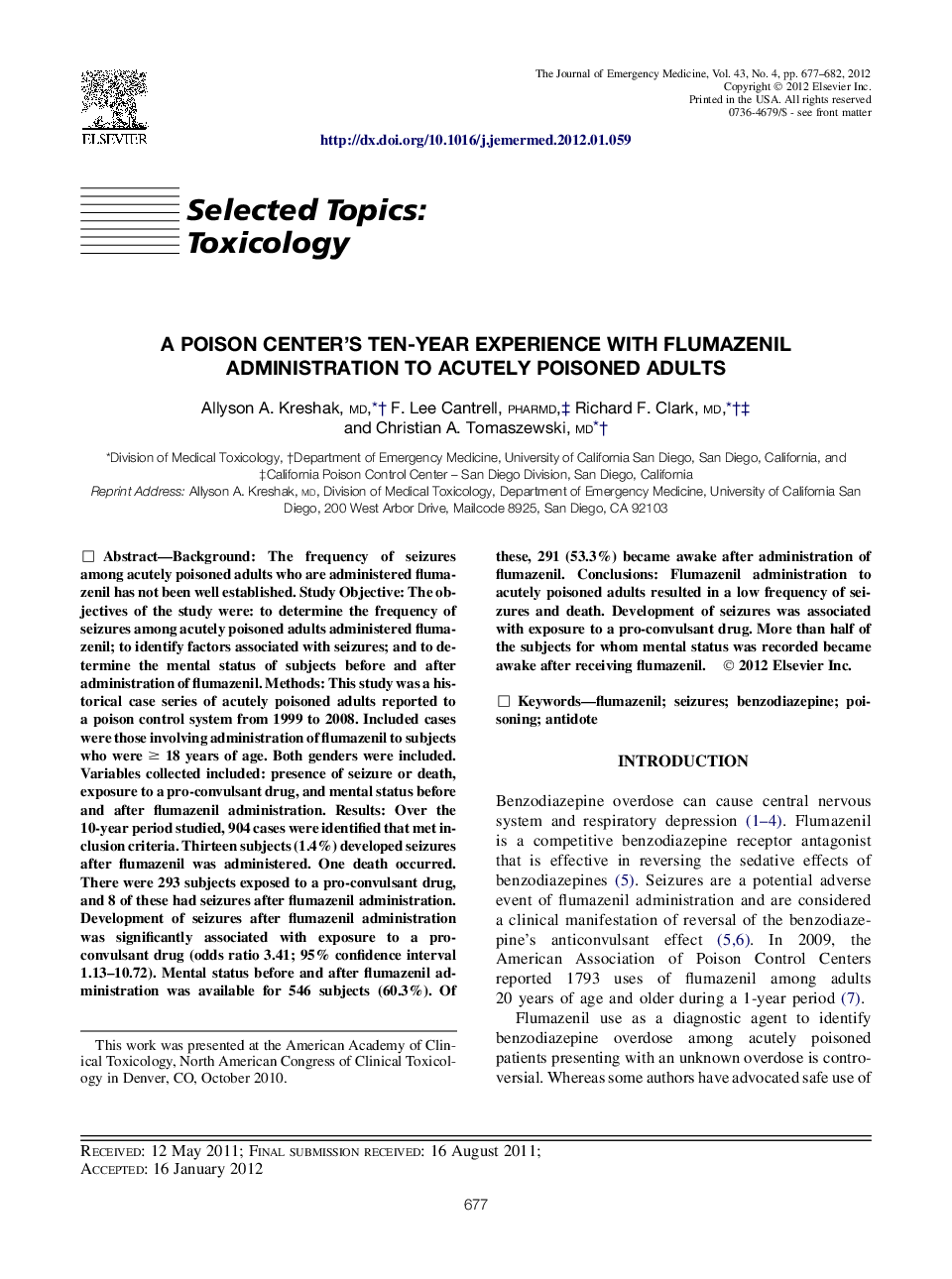| Article ID | Journal | Published Year | Pages | File Type |
|---|---|---|---|---|
| 3248993 | The Journal of Emergency Medicine | 2012 | 6 Pages |
BackgroundThe frequency of seizures among acutely poisoned adults who are administered flumazenil has not been well established.Study ObjectiveThe objectives of the study were: to determine the frequency of seizures among acutely poisoned adults administered flumazenil; to identify factors associated with seizures; and to determine the mental status of subjects before and after administration of flumazenil.MethodsThis study was a historical case series of acutely poisoned adults reported to a poison control system from 1999 to 2008. Included cases were those involving administration of flumazenil to subjects who were ≥ 18 years of age. Both genders were included. Variables collected included: presence of seizure or death, exposure to a pro-convulsant drug, and mental status before and after flumazenil administration.ResultsOver the 10-year period studied, 904 cases were identified that met inclusion criteria. Thirteen subjects (1.4%) developed seizures after flumazenil was administered. One death occurred. There were 293 subjects exposed to a pro-convulsant drug, and 8 of these had seizures after flumazenil administration. Development of seizures after flumazenil administration was significantly associated with exposure to a pro-convulsant drug (odds ratio 3.41; 95% confidence interval 1.13–10.72). Mental status before and after flumazenil administration was available for 546 subjects (60.3%). Of these, 291 (53.3%) became awake after administration of flumazenil.ConclusionsFlumazenil administration to acutely poisoned adults resulted in a low frequency of seizures and death. Development of seizures was associated with exposure to a pro-convulsant drug. More than half of the subjects for whom mental status was recorded became awake after receiving flumazenil.
